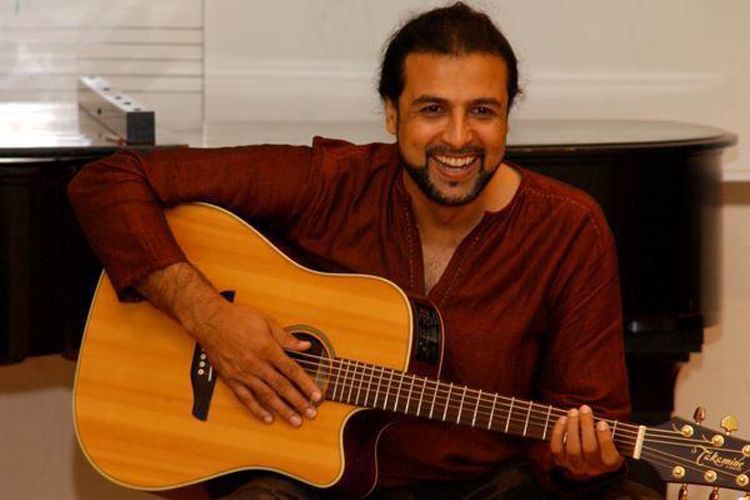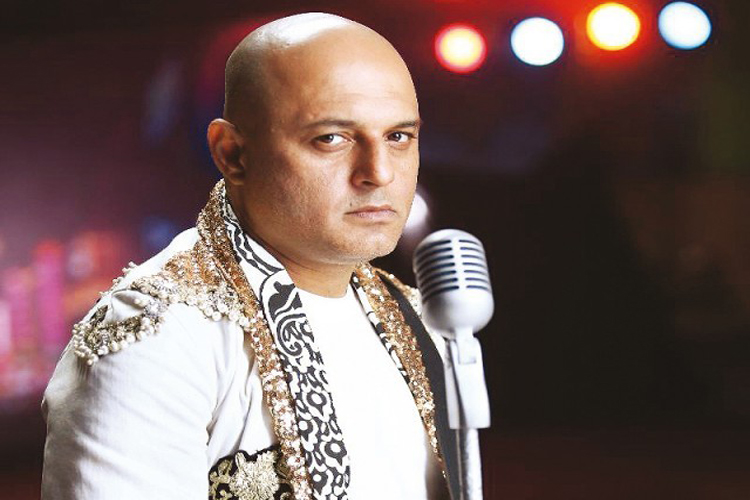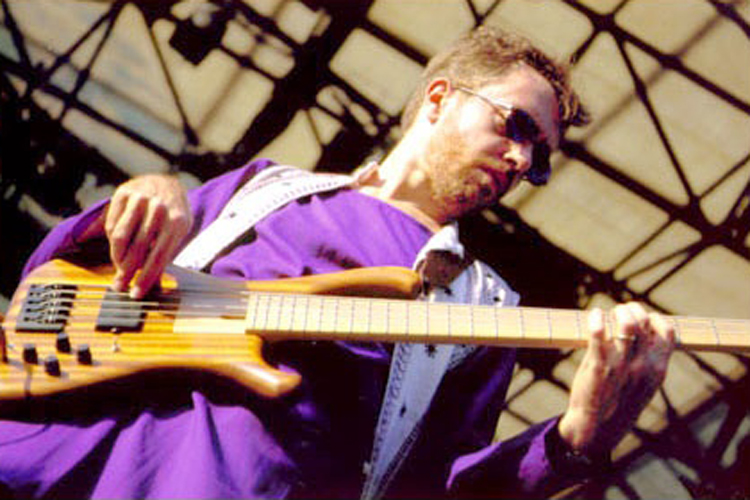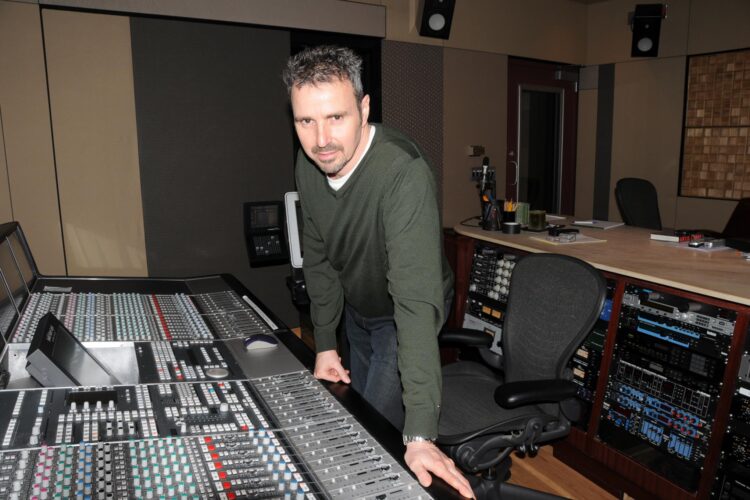About Junoon
Junoon, Pakistan’s biggest rock band was founded in 1990 by Salman Ahmad. Singer, songwriter, musician, author, teacher and film presenter, Ahmad is the alchemist behind Junoon’s sweeping melodies, bhangra rock rhythms and driving guitars. The band known to many as the “U2 of South Asia” blends a powerful, arena rock sound with the epic tranquility of Sufi Muslim love poetry. Junoon has sold over 30 million albums worldwide, including the multi platinum albums Azadi and Parvaaz produced by bass player John Alec.The band’s career has spawned numerous hits like Sayonee, Dum Mustt Qalandar,Ghoom Tana, Dosti, Alvida,Saeein and others. Junoon has shared the stage with artists such as Nusrat Fateh Ali Khan, Melissa Etheridge, Alicia Keys, Sting, A R Rahman, Earth Wind and Fire, and Wyclef Jean and performed at diverse venues like the U.N. General Assembly Hall—the first performance of its kind in 2001.
In December 2007, Junoon performed at the Nobel Peace Prize ceremony in Oslo. In May 2008 Junoon defied death threats from militants to perform in the ethereal valley of Kashmir. The first ever rock concert to be held in Srinagar.
Jon Pareles of the New York Times describes Junoon as “South Asia’s answer to Santana,” and the Wall Street Journal called Junoon’s eclectic music “a powerful combination of Led Zeppelin and traditional South Asian percussion like tabla and dholak.”
Singer and guitar player, Salman Ahmad has recently co-written and recorded a song with academy award winning artist Melissa Etheridge called Ring The Bells which will appear on his new album Rock and Roll Jihad which accompanies the book of the same title being published by Freepress in January 2010. He is co-director of SSGWI a (501) (c) (3) nonprofit based in New York.
Connect. Share. Change the world.
Those three things were what Salman Ahmad knew, upon seeing Led Zeppelin perform at Madison Square Garden in June 1977, he wanted to do with music. “By the end of the night my shoulders, head, and feet were in a state of fana,” or mystical ecstasy, he writes in his memoir Rock & Roll Jihad: A Muslim Rock Star’s Revolution. “I didn’t just like rock and roll. I loved it.”
Twenty five years after the founding of Junoon, the seminal Pakistani rock band, Salman’s love affair with music seems stronger than ever. And so, for his fans like me, does the ecstasy of listening to Salman’s music. For 25 years, Pakistanis, Indians, Urdu- and Punjabi- and English-speakers and music lovers anywhere have been connecting with what Salman and his band mates have shared.
And changing the world? That, you could say, is Salman’s everlasting project even two and half decades after the birth of Junoon. For testimonials, ask those trying to stamp out polio, or a Pakistani politician, or any of the multiple artists Salman has worked with and generously promoted. Ask his students at Queens College, or the audiences in America who could never, if not for Salman, have known how good the mystic poet Bulleh Shah sounds when accompanied by licks from a Les Paul guitar.
Knowing Salman and his music has certainly changed my world. As a child of the 1970s growing up in a small town in Pennsylvania, all I knew about the Muslim world were the images I saw on television: angry, rock-throwing Palestinians and frowning, white-robed oilmen. This was typical media fare for pre-cable, pre-Internet days in small-town America, and my first impressions of the Islamic world were far from positive.
Time changed those impressions – but nothing changed them as much as working with Salman, and studying his music. I first came to Junoon through a Pakistan-born friend who knew of my interest in music, South Asia and faith. I knew Salman’s particular blend of all three – plus the fact he’d spent a good chunk of time in America – would make for a striking profile, and I wrote about him back in 2007 for The Wall Street Journal. I was delighted and honored when he later asked me to collaborate on Rock & Roll Jihad.
I never really left the world I came to love during the writing of that book. Nowadays, when the murderers of the Islamic State claim their latest victim in the name of their beliefs, I hear a riposte not just from Salman, but of millions of Muslims, in Junoon’s song “Dosti” – “friendship.” When I read of the sickening attacks on polio workers by the Taliban in northwest Pakistan, the counter-image that comes to mind is Salman and his friend Shahi Hasan working on a song in support of a campaign to eradicate the disease. And when someone, anyone, casually degrades Islam, I can quote back a collaboration with Peter Gabriel: “Open your eyes,” counsel Salman and Gabriel. “Open your heart.” You can almost hear the Taliban shudder.
Culture humanizes what politics demonizes, as Salman himself often says. And what culture Salman and his band mates have produced! This peace-mongering band of Muslim (and at least one non-Muslim) brothers has put out an ever-growing and diversifying aural feast of rocking jams and mystic musings over the past 25 years. One got a taste of just how much the music has evolved and
grown on the last compilation album, Junoon 20. From the hard-rocking “Talaash” to the quieter “Khwaab” and back to the heavenly stomp of “Must Qalandar,” you can hear the band’s inventiveness and pioneering melody-making accumulate and delight.
Salman has always been at the forefront of junooni explorations into rhythm and melody. But his recent work, especially, calls to mind a modern-day mushaira, or poetic symposium. There he is performing with qawwali great Rahat Fateh Ali Khan on the hypnotic track “Gharya.” Now he’s reaching new heights in the West by recording with veterans Peter Gabriel and Melissa Etheridge. At the same time, he’s jamming with (and thereby promoting) younger artists like Shahjehan of The Kominas and Bilal Khan.
Of course, what we have in Junoon’s music and Salman’s career isn’t – with apologies to some of Salman’s heroes, The Rolling Stones – only rock and roll. Sure, he loves it, as he confirmed long ago in Madison Square Garden. Yet Salman’s activism has developed as much as his music, especially in recent years, as he’s gotten more deeply involved with cricketer-turned-politician Imran Khan. Though Salman lives much of the time in New York now, he’s agitating for a “Naya Pakistan.” Part of that new Pakistan, for Salman, means wiping out polio – as demonstrated most recently by his beautiful, haunting new song “Mushkilain.” Watch the accompanying video about overcoming all challenges. Just be prepared to be moved to tears.
Twenty five years can be a lifetime in the music business, and many artists don’t get anywhere near the silver anniversary. The fact that Salman has is a testament not just to the consuming passion that inspired his band’s name. It’s also a result, I think, of his succeeding at what he set out to do. Through sharing his music, he has connected with fans, other artists, Pakistanis, Americans, and many more. Along the way, he’s helped to change the world, one song at a time.
So here’s to the next 25 years of mystical, magical music-making. You may call Salman a dreamer. But he’s not the only one.
Robert Schroeder is a writer who lives in Bethesda, Maryland. He helped Salman write Rock & Roll Jihad and has written essays, profiles, travel pieces and reviews for The New York Times Magazine, The Wall Street Journal, The Washington Post, and many other publications.



